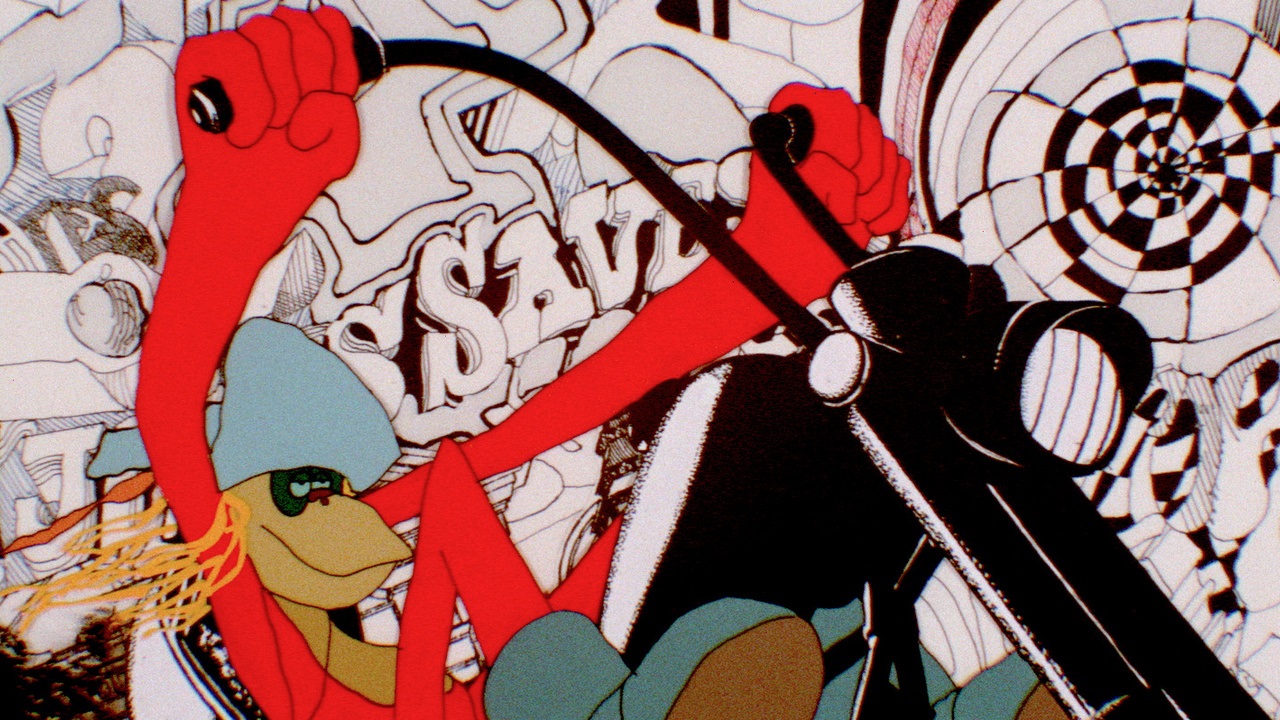






Canada's animation history still manages to surprise me from time to time. I had never heard of the 1971 film "Tiki Tiki," directed by Gerald Potterton, who would have a long career that included projects like "Yellow Submarine" and "Heavy Metal." And from the bizarre premise and development, chances are you haven't heard of it either. Credit to Fantasia Film Festival for screening a restored copy, with mention of a home video release as early as 2025. If nothing else, it's worth watching for the historical value. It's important to mention that the movie is partially a re-edit of clips from the Soviet live-action family film "Aybolit-66." From the producer's explanation, a distributor accquired the American rights to the foreign film, struggled to market it, and determined it was worth the investment to modify the film to recoup costs (this practice was common at the time). Enter Canadian-animator Gerald Potterton and his studio, pitching the idea of a world of cartoon monkeys, making their own in-universe movie. One monkey is a money-grubbing producer, and the other is the laid-back director in a cowboy hat. The film pitch is randomly cobbled, to be about "love," "freedom," with pirates and Russian clowns... and the monkeys will use human actors, as "they'll do things no sensible monkey would do!" Millions of dollars later, the director reveals an giant ("and expensive!" cries the producer) rocket / filming machine, to fly and record the actors live on location. And so, we watch scenes of the Russian film, dubbed with a new English script, as the monkeys record them. After a fun extended introduction, we're stuck primarily with the re-used footage, making up more than half the movie. It involves a kind doctor and his talking dog following a young monkey to the island of Tiki Tiki, where her monkey friends are enslaved by merciless dancing pirates. No effort is made to hide that the "animal" characters are large adult humans in cheap Halloween costumes. The redubbed English lines occassionally use jokes that suggest even they didn't know what the original film was about. All that said, the original film looks like fun for children, and has some clever visual gags with its aspect ratios, so it might have some merit for film historians. Western viewers should have some trepidation... it originally released in the middle of the Cold War, and Russia's moral integrity disappeared entirely by 2022... but "Tiki Tiki" slyly addresses this too: in a brief scene where the doctor is comforting a crying monkey by describing a better world, we get a montage of beautiful helicopter shots of Western civilization and nature, specifically Canada. For the few scenes that are animated, it'll feel very familiar to fans of 1968's "Yellow Submarine" in design and delivery. I'd even say it mixes in a little of "Fritz the Cat" (clearly in the director's free-living way against the producer's clueless opinions on his creativity), and "Monty Python" (there are several delightfully detailed title cards). It's abstract, and sparingly animated, but fun in how it doesn't take itself seriously. If you're a fan of all the underground, independent animation that came between 1960 and 1990, this film (predating most of those that defined the movement) will feel right at home. And I suspect adults looking for a movie to go on a "trip" with will especially appreciate "Tki Tiki," as the movie's colours and editing seem to have that specific audience in mind.  But however I try to justify it, I can't say "Tiki Tiki" is good. It's weird and bizzare in a fun way, but not good. It might be worth watching once, and for how rare the movie was, it's a badge of proof among film nerds to say you've seen it. Or if the director-producer relationship sounds interesting, it'll give you a good laugh here.
But however I try to justify it, I can't say "Tiki Tiki" is good. It's weird and bizzare in a fun way, but not good. It might be worth watching once, and for how rare the movie was, it's a badge of proof among film nerds to say you've seen it. Or if the director-producer relationship sounds interesting, it'll give you a good laugh here.